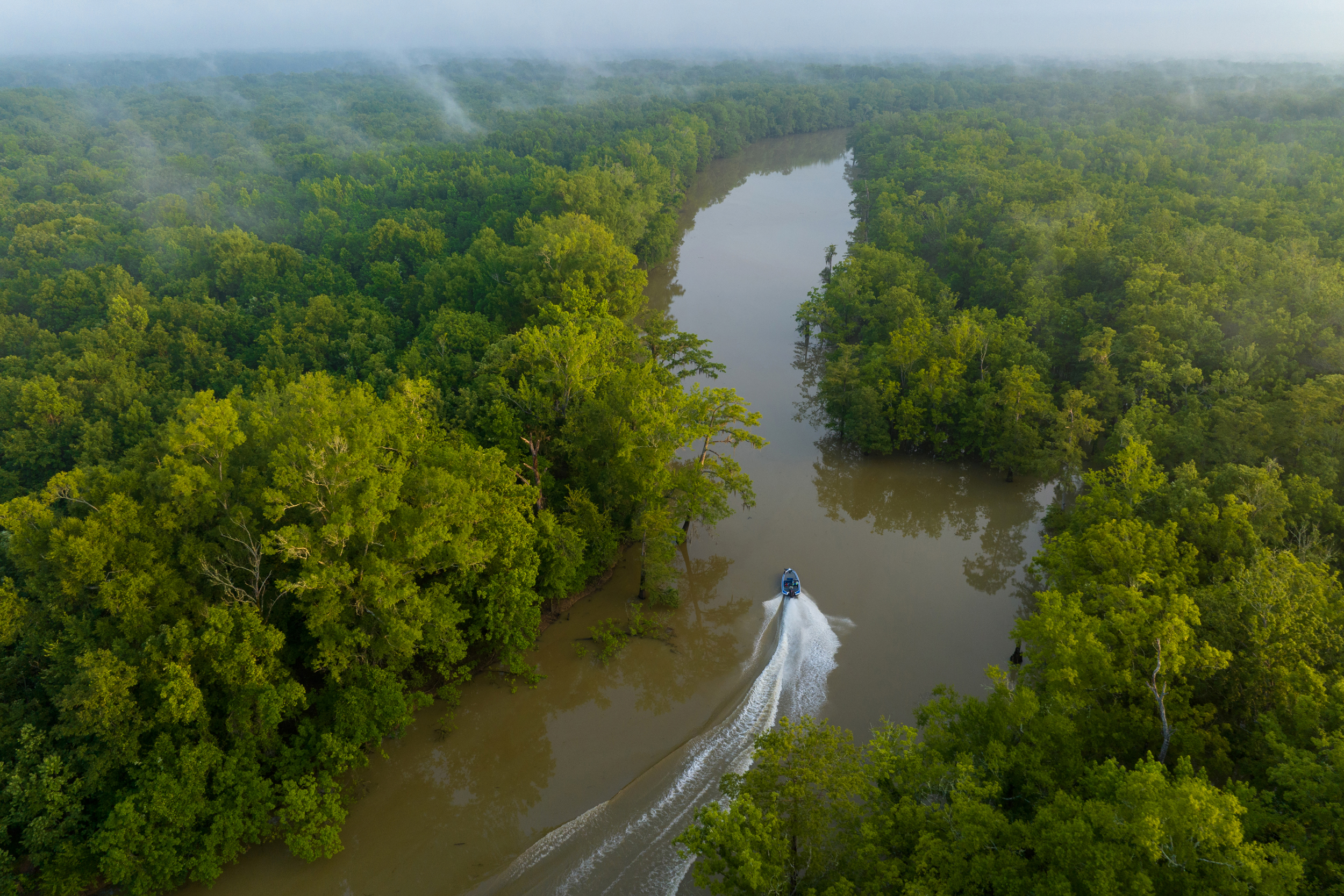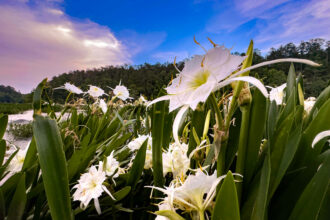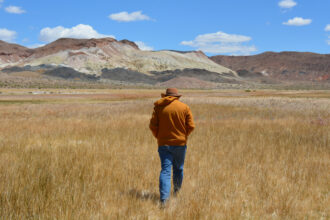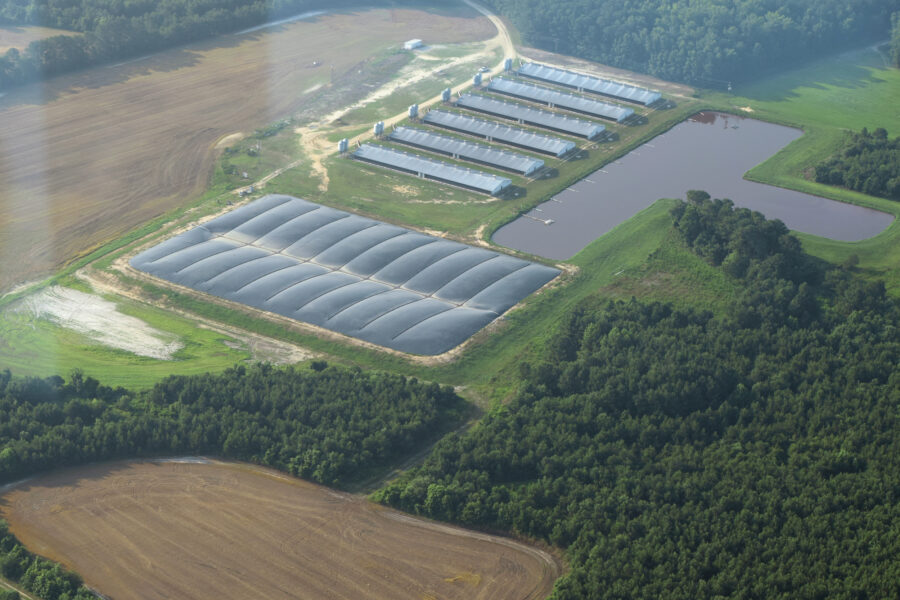Long before he was writing bestselling books that defined the understanding of biodiversity, Edward O. Wilson was a boy in Mobile, Ala., exploring the bayous and backwaters of the Mobile-Tensaw Delta and marveling at its wildlife.
Now, conservation groups are dedicating nearly 8,000 acres of that Delta, one of the most biodiverse places in North America, as the E.O. Wilson Land Between the Rivers Preserve in his honor.
The naming of the preserve for the renowned biologist was announced Tuesday—on what would have been Wilson’s 96th birthday—by The Nature Conservancy in Alabama and the E.O. Wilson Biodiversity Foundation. Wilson, a Pulitzer Prize-winning author, died in 2021.
“There is nobody more associated with the Delta than E.O. Wilson,” Mitch Reid, the conservancy’s director, said in a prepared statement. “The Delta is as unique and iconic as Dr. Wilson, and it is fitting that his name and legacy be forever connected with the place that inspired him on his incredible journey.”
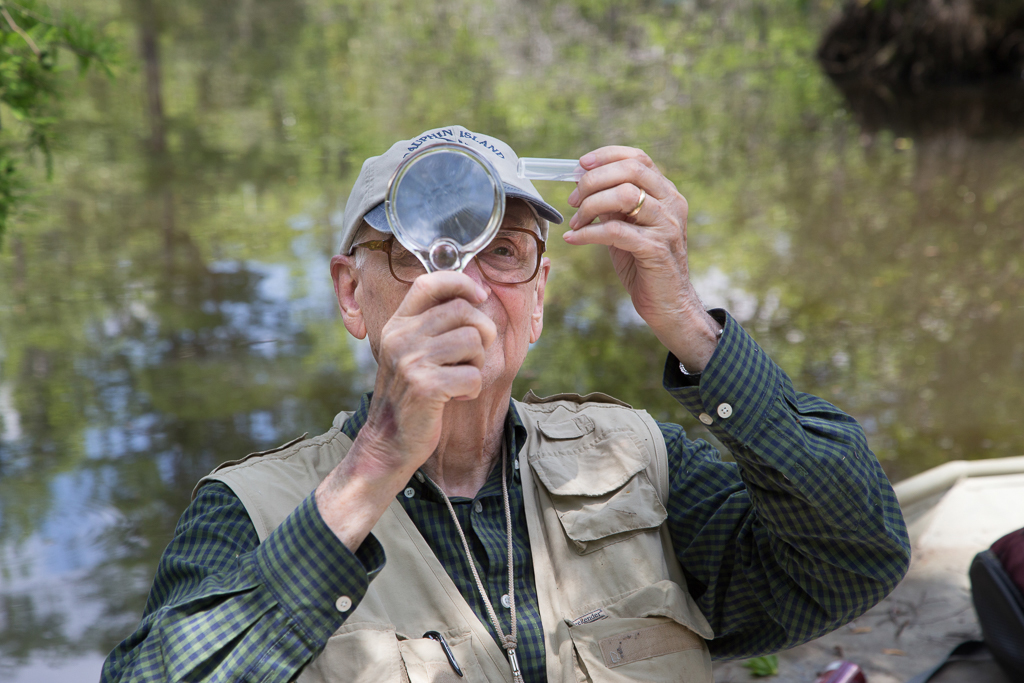
The Nature Conservancy announced the $15 million land purchase last year as a preserve with funds from Patagonia’s Holdfast Collective and an anonymous donor.
Reid said the foundations were moved by some practicalities—and consternation—about the proposed future use of Wilson’s onetime natural wonderland.
“It was up for sale, proposed as a sale for a wood pellet project,” Reid said in a webinar announcing the dedication.
Across the southeastern United States, the wood biomass industry has expanded in recent years, largely to produce pellets to fuel electricity in overseas markets. The European Union and the United Kingdom are among the countries that offer subsidies to promote biomass energy as an alternative to fossil fuels. There are competing claims, however, about the risks and benefits of the pellets with scientists still debating the loss of forestland and carbon generated by such wood burning.
Reid said the possibility of swaths of Delta forest chipped and shipped overseas spurred action.
“You can imagine 8,000 acres of some of the most biodiverse, hardwood, carbon-storing lands would have been hacked apart so that we could ship the wood away and burn it as a ‘carbon-neutral’ source of fuel,” Reid said. “And the community really came together and said, ‘We want to see this place protected.’”
The preserve will include 7,990 acres of undeveloped land between the Alabama and Tombigbee Rivers, just north of where they merge to form the Mobile-Tensaw Delta.
The Delta’s watershed includes most of Alabama and parts of Mississippi, Tennessee and Georgia, funneling rainwater from those states into the Gulf of Mexico.
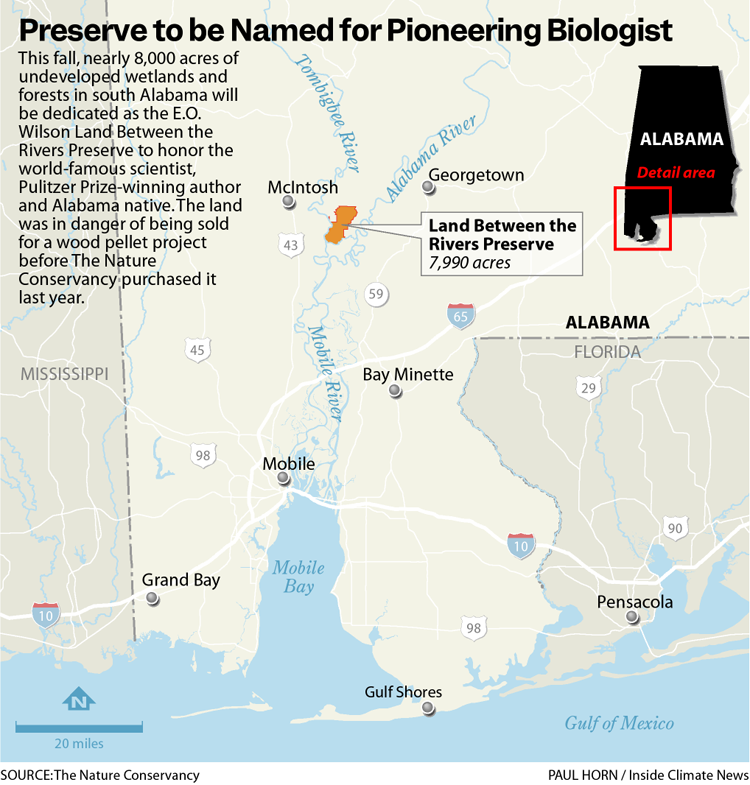
The Delta is sometimes called “America’s Amazon” due to the remarkable array of life there, with hundreds of species of fish, birds, reptiles, amphibians, mammals and plants.
Wilson grew up in the port city of Mobile, at the south end of the Delta, and the preserve that will bear his name is located about 30 miles inland, in Clarke County.
Much of the area is accessible only by boat, and parts of the land there are submerged for months at a time. It remains much like Wilson would have seen it: an undeveloped stretch of wetlands and bottom-land forests, with tendrils from two rivers that flow parallel for miles and then merge downstream.
“This is a place that is important for migratory birds. We’ve got black bears, we’ve got the largest concentration of American alligators [in Alabama],” Reid said. “We’ve got the fish and the land and the trees and all that life coming together here.”
Reid said that nonprofits plan, at some point, for the land to be incorporated as public land through the National Wildlife Refuge system.
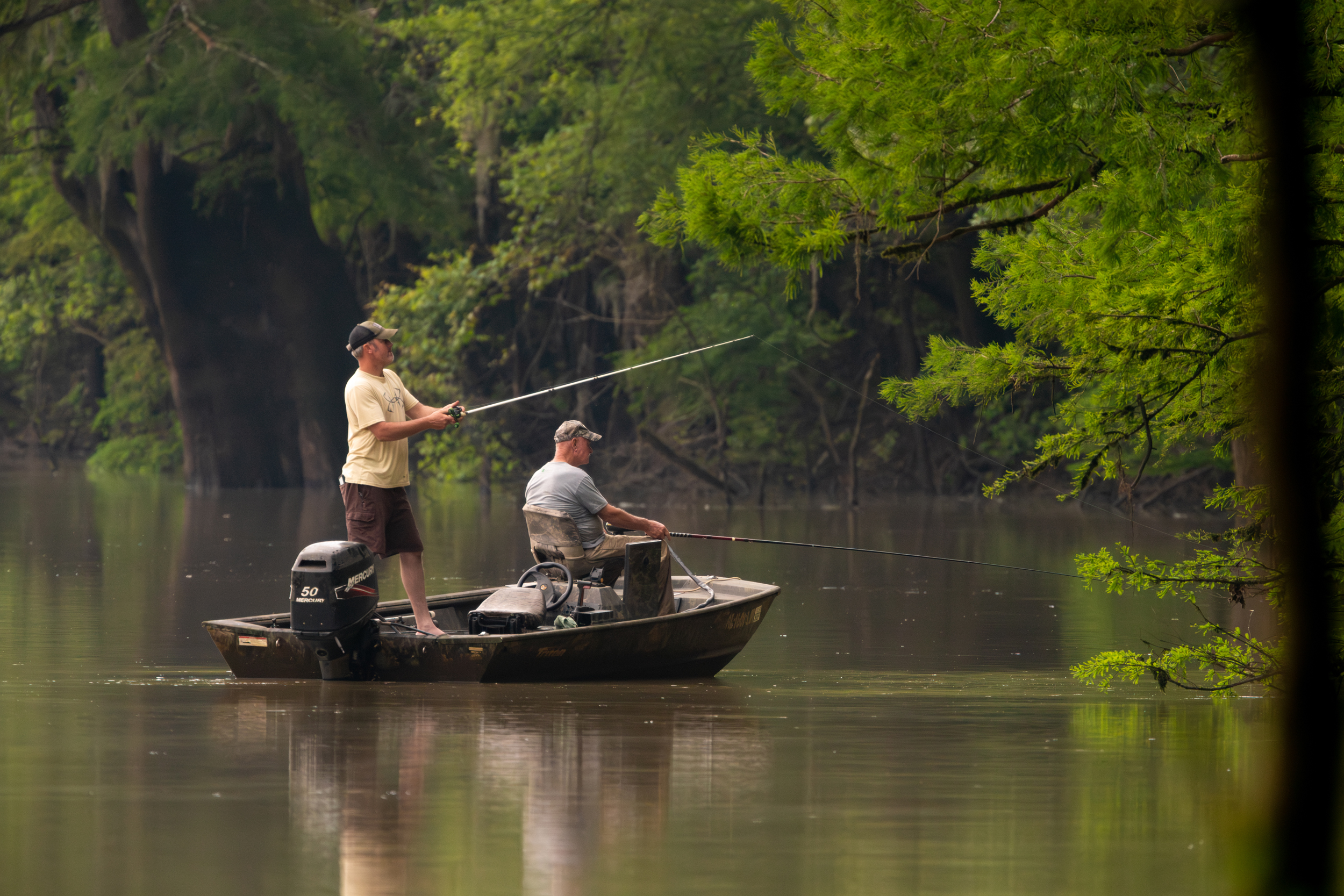
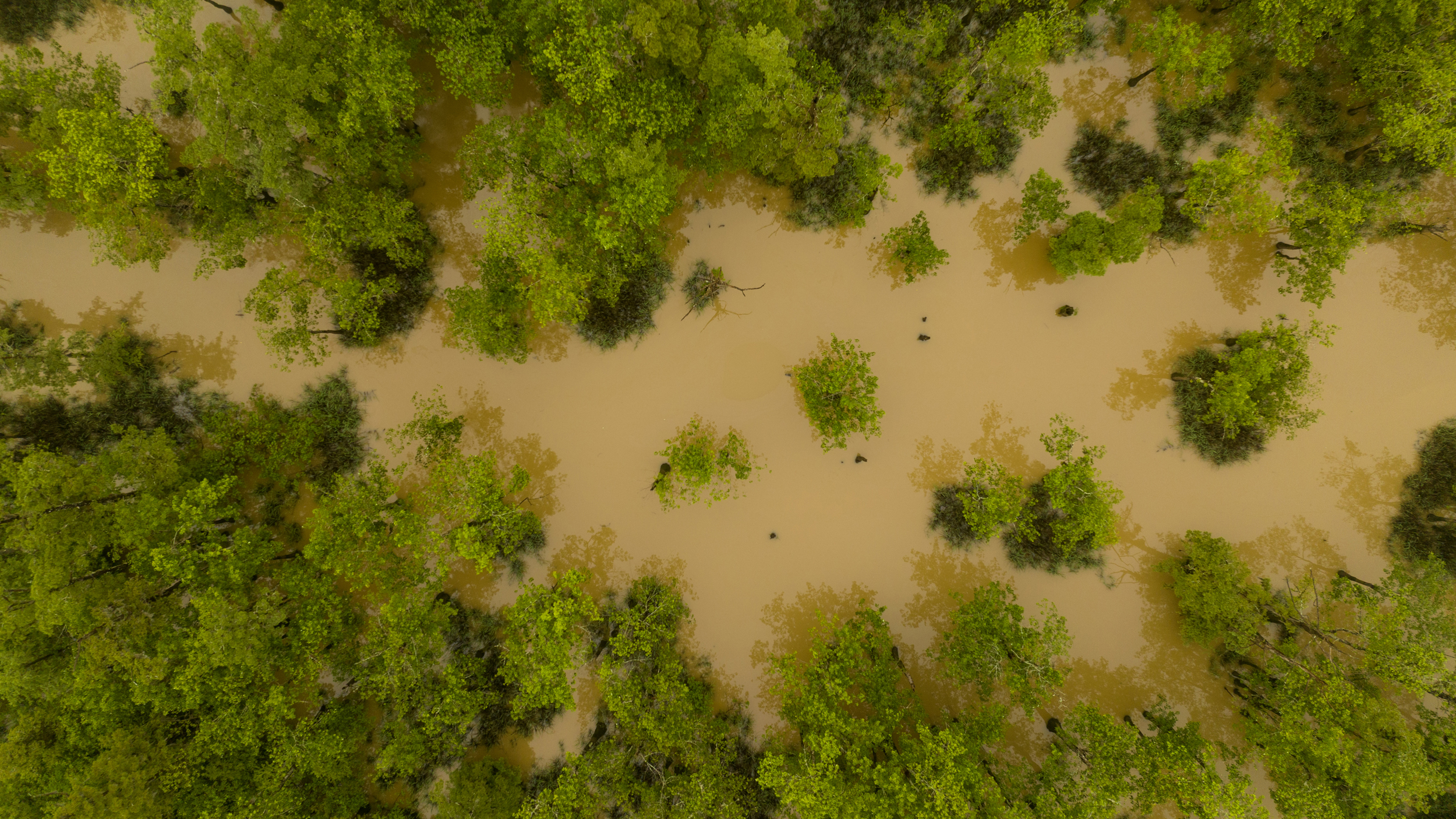
A Wildlife Corridor Through Alabama
Reid called the site an “anchor point” for The Nature Conservancy to create a wildlife corridor, stretching from Alabama’s coast to the Appalachian Mountains in central and northeast parts of the state.
“We know that as the climate changes, life is on the move,” Reid said.
The Nature Conservancy has also purchased about 1,000 acres around Flagg Mountain, the southernmost Appalachian peak reaching more than 1,000 feet, and other sensitive sites around the state.
This story is funded by readers like you.
Our nonprofit newsroom provides award-winning climate coverage free of charge and advertising. We rely on donations from readers like you to keep going. Please donate now to support our work.
Donate Now“[The Wilson Preserve] anchors us in the southwestern part of Alabama,” Reid said. “And from here, we’re going to work up our river systems along the Alabama River into the first mountains of the Appalachians in eastern Alabama. And from there, you have a connected corridor of mountains all the way up to Maine.”
According to The Nature Conservancy, more than 300 migratory bird species pass through the Delta every year—including waterfowl such as wood ducks, least terns, ibises and egrets—with more than 100 species nesting in the area.
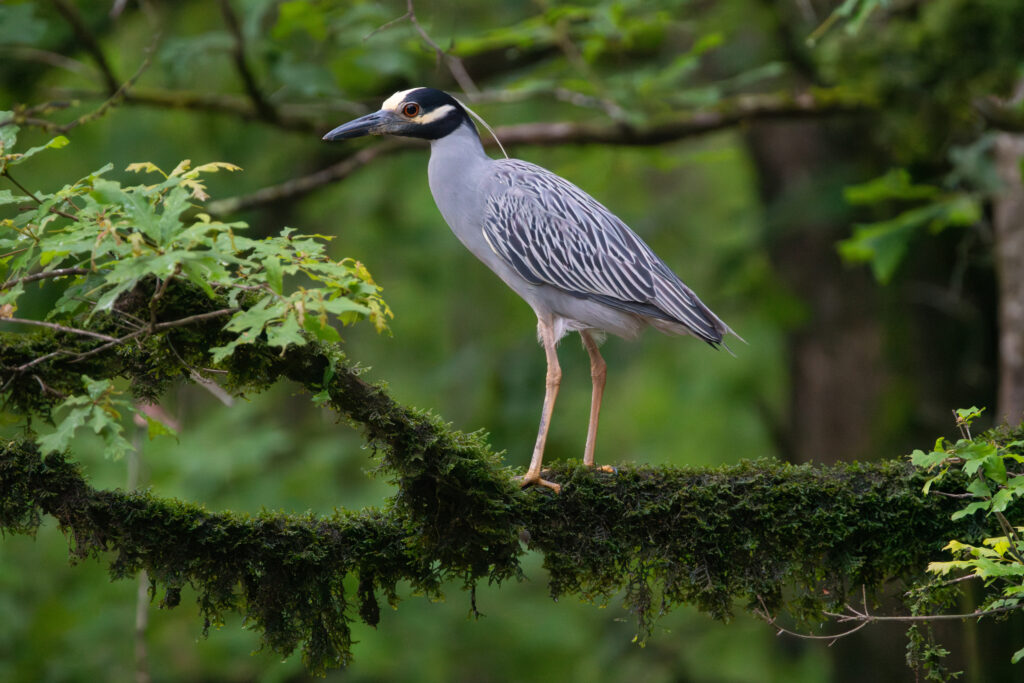
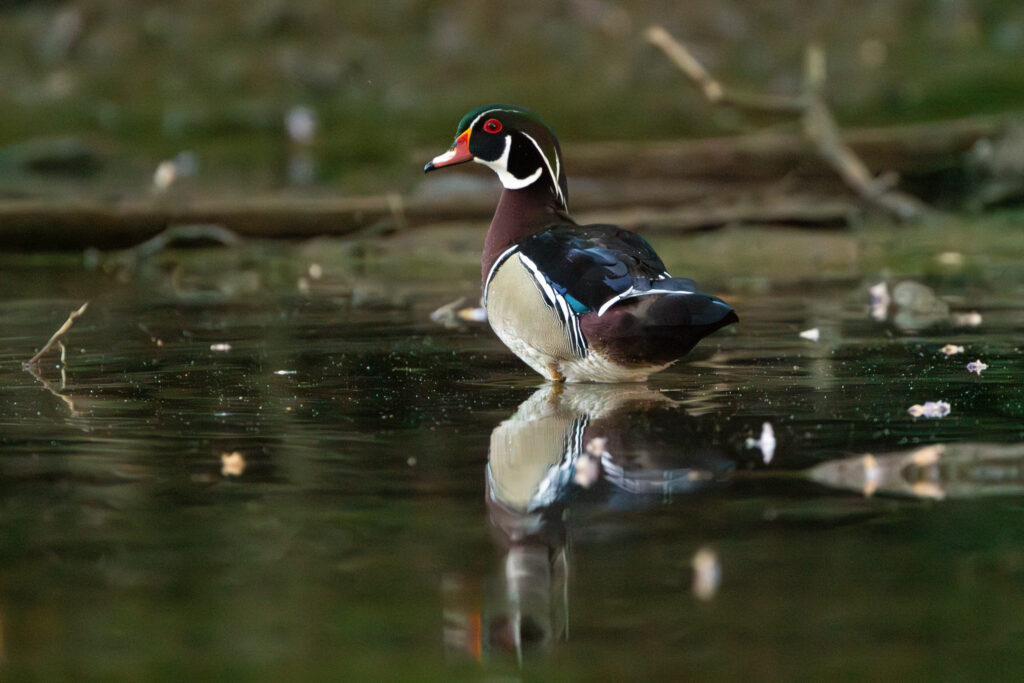
A yellow-crowned night heron perches atop a moss-covered branch and a wood duck wades through shallow water in what will soon be called the E.O. Wilson Land Between the Rivers Preserve. Credit: Hunter Nichols/TNC
The conservancy says the Delta is home to 67 rare, imperiled, threatened or endangered species, including the Alabama sturgeon, an endangered fish so rare it has not been captured since 2007.
The new preserve includes some of the last known habitat of the sturgeon, in the Alabama River north of its confluence with the Tombigbee.
The “Father of Biodiversity”
Wilson, who was born in Birmingham, spent much of his childhood exploring the outdoors in Alabama and other states. After a fishing accident left him partially blind in one eye, Wilson shifted to exploring the ground beneath his feet—and studying ant colonies.
While still in high school in Mobile, Wilson documented an invasive fire ant colony in the United States, leading to his first scientific publication.
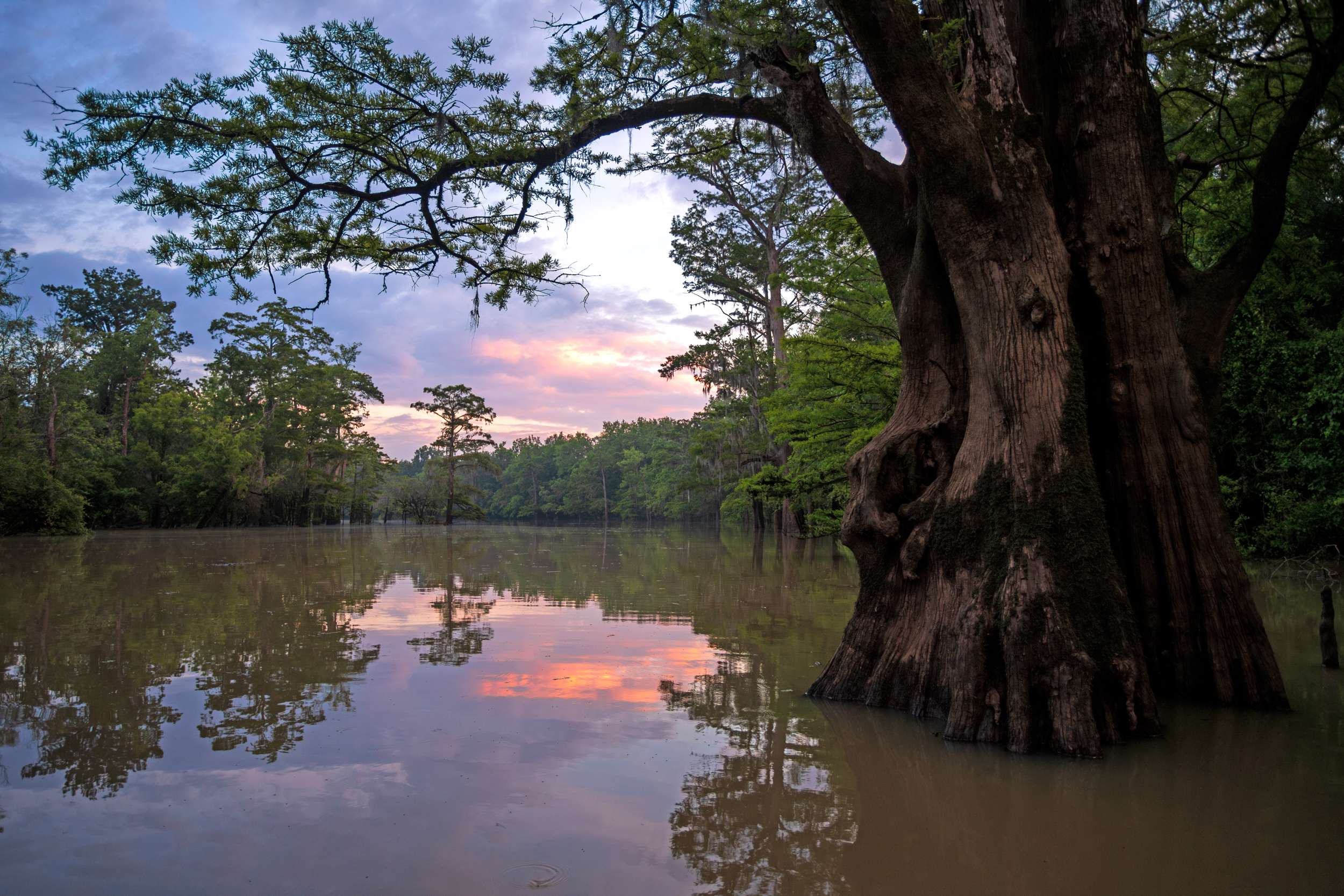
The fascination with ants led him to groundbreaking scientific works on ant colony behavior, distribution and species diversity. He later transferred his knowledge toward other species, including humans. “On Human Nature,” and “The Ants,” both won a Pulitzer Prize for General Nonfiction books, a rare achievement for heavily scientific texts.
Wilson, a professor at Harvard University for 46 years, authored more than 20 books. He emerged as a leading voice for conservation and was lauded as the “father of biodiversity,” the “father of sociobiology,” or simply, “Darwin’s heir.”
“Nothing would have brought Ed more joy than knowing this extraordinarily important habitat will be protected,” Paula J. Ehrlich, president and chief executive officer of the E.O. Wilson Biodiversity Foundation, said in a release. “This place inspired so much of the global conservation ethic he so keenly advanced. I’d like to imagine his spirit will always be there.”
About This Story
Perhaps you noticed: This story, like all the news we publish, is free to read. That’s because Inside Climate News is a 501c3 nonprofit organization. We do not charge a subscription fee, lock our news behind a paywall, or clutter our website with ads. We make our news on climate and the environment freely available to you and anyone who wants it.
That’s not all. We also share our news for free with scores of other media organizations around the country. Many of them can’t afford to do environmental journalism of their own. We’ve built bureaus from coast to coast to report local stories, collaborate with local newsrooms and co-publish articles so that this vital work is shared as widely as possible.
Two of us launched ICN in 2007. Six years later we earned a Pulitzer Prize for National Reporting, and now we run the oldest and largest dedicated climate newsroom in the nation. We tell the story in all its complexity. We hold polluters accountable. We expose environmental injustice. We debunk misinformation. We scrutinize solutions and inspire action.
Donations from readers like you fund every aspect of what we do. If you don’t already, will you support our ongoing work, our reporting on the biggest crisis facing our planet, and help us reach even more readers in more places?
Please take a moment to make a tax-deductible donation. Every one of them makes a difference.
Thank you,


